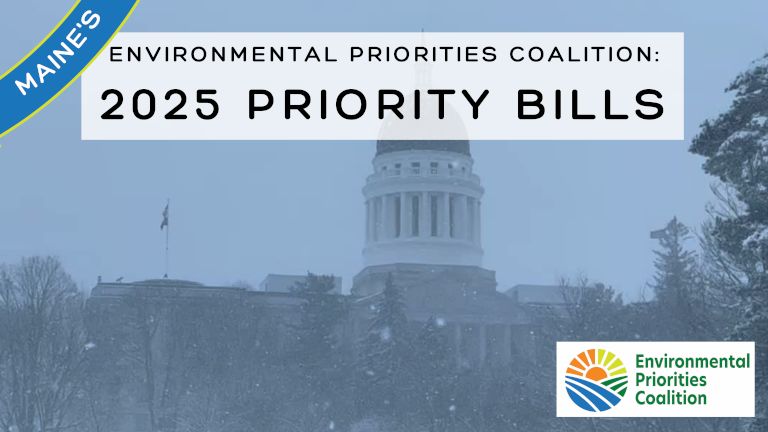2025 EPC Priorities
Maine’s Environmental Priorities Coalition (EPC) is an inclusive statewide alliance of 41 conservation, climate action, and public health organizations. Each year we collectively identify a slate of policy priorities to act on the climate crisis, further environmental justice, protect land, water, and wildlife, and cultivate healthy Maine communities
COMPLETED
Bills that were completed this session.
CARRIED OVER
Bills that will be finalized next session.
